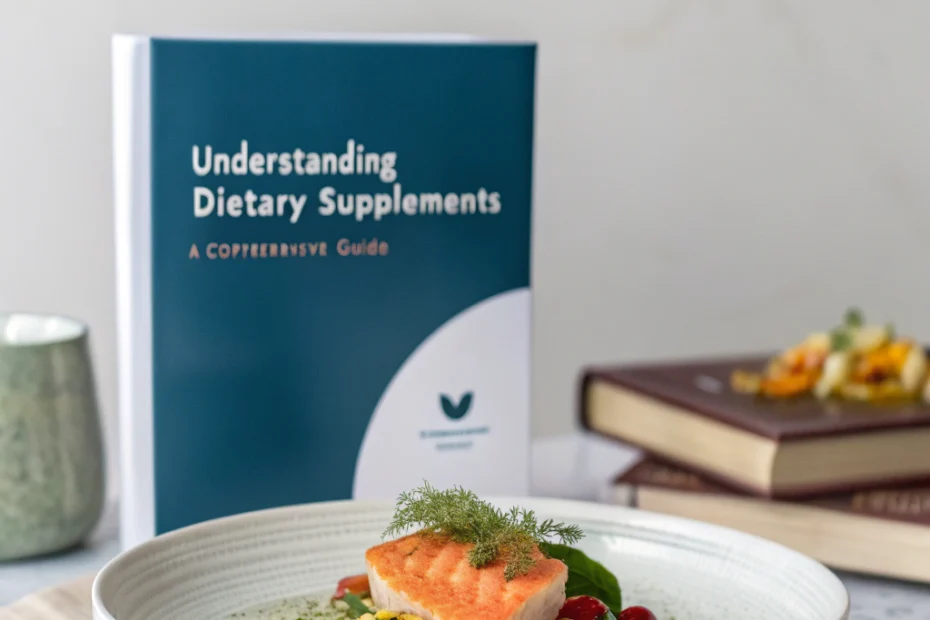Quick Take
Dietary supplements can be a valuable addition to your wellness routine. They are commonly used to support various aspects of health, such as boosting immunity, improving digestion, and enhancing energy levels. However, it’s important to understand that supplements are not a substitute for a balanced diet and healthy lifestyle. Instead, they can complement your nutrition by providing additional nutrients that may be lacking in your diet.
Supplements come in various forms, including tablets, capsules, powders, and liquids. Each type has its own set of benefits and considerations. For example, capsules and tablets are convenient for on-the-go use, while powders can be easily mixed into drinks or smoothies.
How to Choose
Choosing the right dietary supplement can be overwhelming given the vast array of options available. Here are some tips to help you make an informed decision:
- Identify Your Needs: Consider what specific health goals you want to address. Are you looking to support your immune system, improve joint health, or enhance mental clarity?
- Research Ingredients: Look for supplements that contain ingredients backed by scientific research. Check for the presence of essential vitamins, minerals, and other beneficial compounds.
- Check for Quality Certifications: Opt for products that have been tested by third-party organizations for quality and purity. Certifications can provide assurance that the product meets certain standards.
- Consult a Healthcare Professional: Before starting any new supplement, it’s wise to consult with a healthcare provider, especially if you have existing health conditions or are taking medications.
Safety & Setup
Safety should always be a top priority when incorporating supplements into your routine. Here are some safety tips to consider:
- Read Labels Carefully: Pay attention to dosage instructions and potential allergens listed on the label.
- Be Aware of Interactions: Some supplements can interact with medications or other supplements. Discuss potential interactions with your healthcare provider.
- Start Slowly: When trying a new supplement, start with a lower dose to see how your body reacts before gradually increasing to the recommended amount.
- Monitor Your Health: Keep track of any changes in your health or side effects you experience after starting a supplement.
Core Pillars
The core pillars of using dietary supplements effectively include understanding their purpose, ensuring quality, and maintaining consistency. Supplements are most effective when used as part of a comprehensive approach to health that includes a balanced diet, regular exercise, and adequate sleep.
Quality is crucial, as not all supplements are created equal. Look for products that are manufactured in facilities that follow Good Manufacturing Practices (GMP) and have been tested for contaminants.
Consistency is key. Taking supplements regularly as part of your daily routine can help you achieve the desired health benefits over time.
Storage & Quality Tips
Proper storage of dietary supplements is essential to maintain their potency and effectiveness. Here are some tips to ensure your supplements remain in optimal condition:
- Store in a Cool, Dry Place: Heat and moisture can degrade supplements, so keep them in a cool, dry location away from direct sunlight.
- Keep Containers Sealed: Always close the lid tightly after use to prevent exposure to air and moisture.
- Check Expiration Dates: Regularly check the expiration dates on your supplements and dispose of any that are past their prime.
- Avoid Refrigeration: Unless specified on the label, most supplements do not require refrigeration and should be kept at room temperature.
Comparison with Alternatives
When considering dietary supplements, it’s helpful to compare them with alternative options such as whole foods and fortified foods. Whole foods provide a complex array of nutrients that work synergistically, while fortified foods have added nutrients to enhance their nutritional value.
Supplements can be a convenient way to ensure you get specific nutrients that may be lacking in your diet. However, they should not replace the variety and balance of nutrients found in whole foods. It’s often best to use supplements to fill specific gaps in your nutrition rather than as a primary source of nutrients.
FAQs
- Can I take multiple supplements at once? It’s possible to take multiple supplements, but it’s important to be aware of potential interactions and to consult with a healthcare provider.
- How long does it take to see results? The time it takes to see results can vary depending on the supplement and individual health factors. Some people may notice changes within a few weeks, while others may take longer.
- Are natural supplements better than synthetic ones? Both natural and synthetic supplements can be effective. The key is to choose high-quality products and consult with a healthcare professional.
- Do I need to take supplements if I eat a balanced diet? If you have a well-rounded diet, you may not need additional supplements. However, certain life stages or health conditions may require supplementation.
What to Do Next
Now that you have a better understanding of dietary supplements, consider evaluating your current health needs and lifestyle. Determine if there are specific areas where supplements could provide support. Remember to consult with a healthcare professional to tailor your supplement regimen to your individual needs.
As you explore the world of dietary supplements, keep in mind the importance of quality, safety, and consistency. By making informed choices, you can enhance your wellness journey and work towards achieving your health goals.
Disclaimer: Always consult a qualified healthcare professional before using any supplement.
